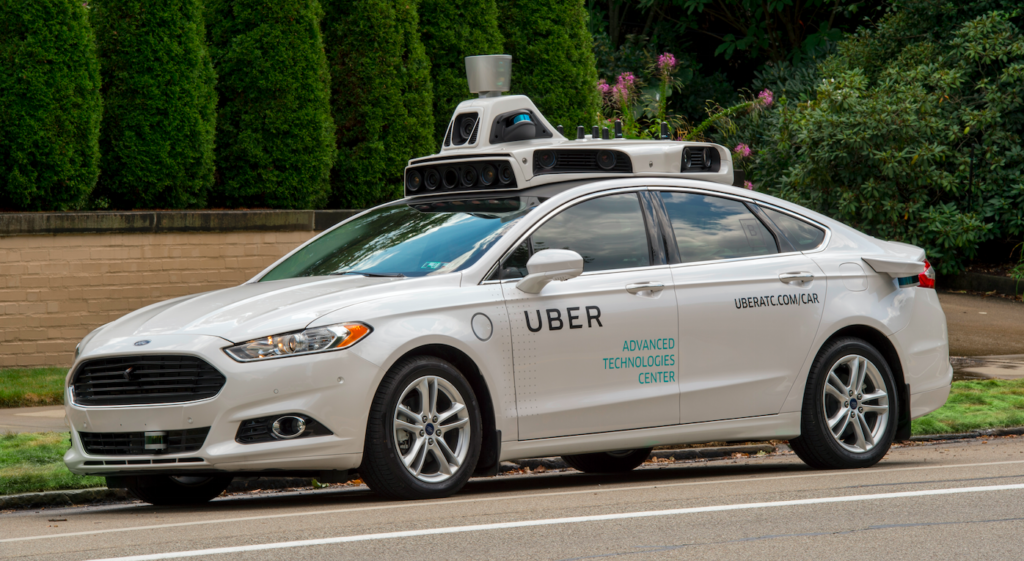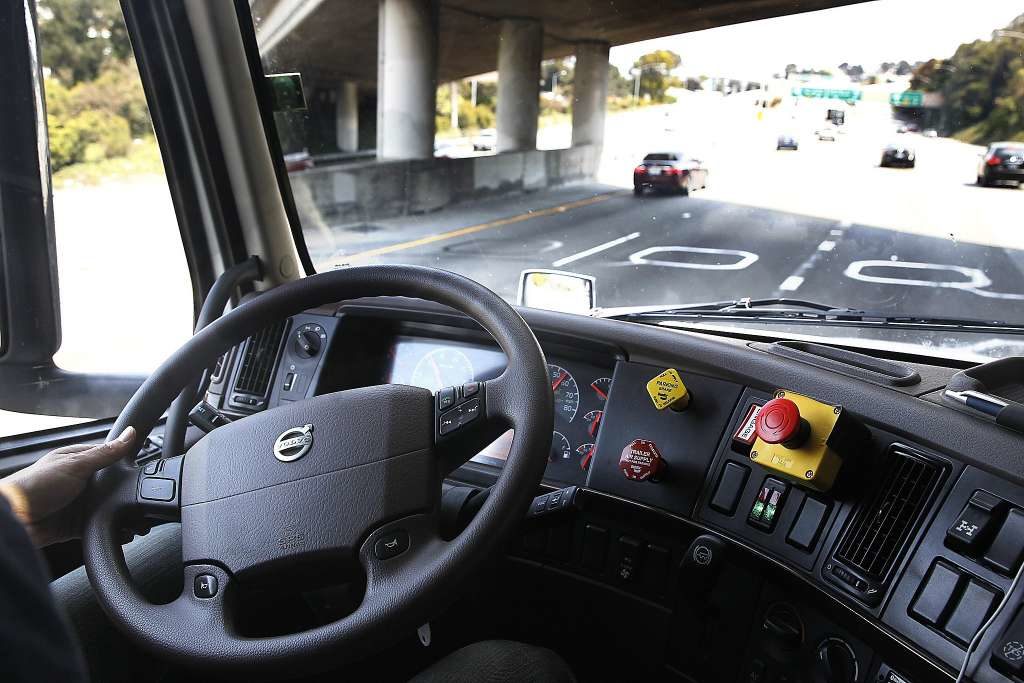What drives workers’ comp is employment – more specifically, payroll, industry type, and claim frequency.
Employment is the end-all and be-all of workers’ comp – for premiums and policies on the front end, and getting work comp patients back to work when claims do happen.
So when a whole lot of jobs in a bunch of industries look to be disappearing, we work comp folks need to take notice.
If you insure, manage claims for, provide services to, or otherwise work in the transportation/logistics industry, you’d best be watching developments in Pittsburgh and keeping your eye on Otto.
Uber is experimenting with its self-driving cars in the Steel City, a big step on the way to fully automated driverless cars.
Ford is heavily involved, and will have a self-driving car on the market in 5 years. Sign me up; as one who spends way too much time behind the wheel, I’m all over this. Do work, read, work while being transported to client meetings? Heck yes!
The giant “ride-sharing” company is also behind Otto, an effort to automate long-haul trucking.
Photo below from SF Chronicle; testing of Volvo truck by engineer Nic Munley.
Unlike competitor Lyft, Uber doesn’t seem to care that its current drivers are going to be left ride-less in the not-too-distant future, nor is Uber bothered that, if when Otto and its lookalikes are successful in removing drivers from trucks, those 900,000 truck drivers will not have jobs.
And without truck drivers, truck stops won’t be selling much food or necessaries. Motels won’t be providing showers or rooms. Body shops won’t be needed as much either.
Uber contends that the 24/7 usage of driverless vehicles will mean more jobs for mechanics, but that’s speculative at best. In fact, as these vehicles will just be replacing miles driven by vehicles currently piloted by people and not adding more vehicle miles, I don’t see why any more mechanics will be needed. Actually, less maintenance may be the norm due to constant monitoring of vehicle systems.
So…
- far fewer truck drivers
- fewer support staff
- fewer jobs in service stations, motels
- fewer “taxi-type” drivers
- fewer accidents = less work for body shops, less demand for auto parts and paint, less need for auto claims adjusters
For work comp…
- much lower premium volume
- far fewer claims to service
- far fewer jobs to return injured drivers to
- possibly more claims in the near future as drivers see the writing on the wall





I for one am not comfortable with the driver less concept. Given the number of glitches that happen on my computer, cell phone and other techno devices, I am not looking forward to sharing the road with a 20,000 plus vehicle operated by a system solely dependent on technology. I know that I am old fashion but with out truck drivers in the cab my road rage will no longer be as much fun.
I agree Joe, the next two decades are going to see huge changes and challenged in many sectors. The biggest challenge will be what to do with all of these people that will no longer have jobs. I do so look forward to the day when the Self Driving Trucks will be relegated to their own lane and will chug along at the posted speed limit versus trying to pass me while I am driving at 68mph.
With access to big data and powered by sophisticated \’learning\’ algorithms, artificial intelligence technologies are now doubling their performance roughly every 18 months.
Those who are projecting future. \’shortages\’ of physicians, nurses, therapists, insurance professionals (read, the much discussed looming \”talent shortage\”), etc. might want to reconsider those projections in the event that artificially intelligent systems continue to rapidly improve. Just do a Google search on IBM\’s Watson artificial intelligence technology, for example, to see what jobs are targeted…doctors and lawyers beware! Unfortunately, car and truck drivers are only the start.
Joe when the personnel computer arrived we were all going to a three day week. remember what happened
same here there will all ways be jobs we have so much to do and fix. we are far behind as a country in many many ways.
Improved safety is a huge win for society as a whole. But I haven’t heard about whether the driverless vehicles are capable of driving in snowy or icy conditions, rural dirt or gravel roads, etc. Those are a small share of miles driven in some places, but much larger in others. Human drivers will likely be needed for a long time for those adverse conditions, so I would expect driving jobs to become more seasonal. Also, many truck drivers have loading/securing/unloading tasks to do as part of the job– those aren’t going away anytime soon.
And though it still seems like science fiction, some of the excess drivers may be re-trained to pilot drones that deliver packages, take-out food, and so on. Possibilities are unlimited if we let innovation flourish and don’t become mired in trying to keep things as they are.
With access to big data and powered by sophisticated ‘learning’ algorithms, artificial intelligence technologies are now doubling their performance roughly every 18 months.
Those who are projecting future. ‘shortages’ of physicians, nurses, therapists, insurance professionals (read, the much discussed looming “talent shortage”), etc. might want to reconsider those projections in the event that artificially intelligent systems continue to rapidly improve. Just do a Google search on IBM’s Watson artificial intelligence technology, for example, to see what jobs are targeted…doctors and lawyers beware! Unfortunately, car and truck drivers are only the start.
As someone who has overseen the workers compensation claims for union/Teamster drivers, this will also increase the amount of “end of career” claims that seem to happen to so many drivers nearing retirement. These will be for younger drivers, with the risk of higher wage loss due to their young age and inability to find work paying them their prior “wage earning capacity”. There will also be fewer drivers supporting the existing multi-employer pension funds, which are already in danger of insolvency.
That is, IF this comes to pass.
I don’t any significant impact on employment perhaps for a couple of decades, however, your point is well taken. But perhaps the Workers Comp industry would need to adapt with the times and find new opportunities. Uber has changed the rules of the game and perhaps Workers Comp professionals could come up with innovative products too!
How susceptible to hacking will they be? What will the roads be like when 50% of the cars are driverless and going the speed limit and the other 50% are whizzing by at 10 over? I love where we are headed but I’m not a driver. Buggy whip and horse carriage industry employees had to find new jobs too. Change is good and necessary for a healthy growing free-market. Now if we only had a free market.